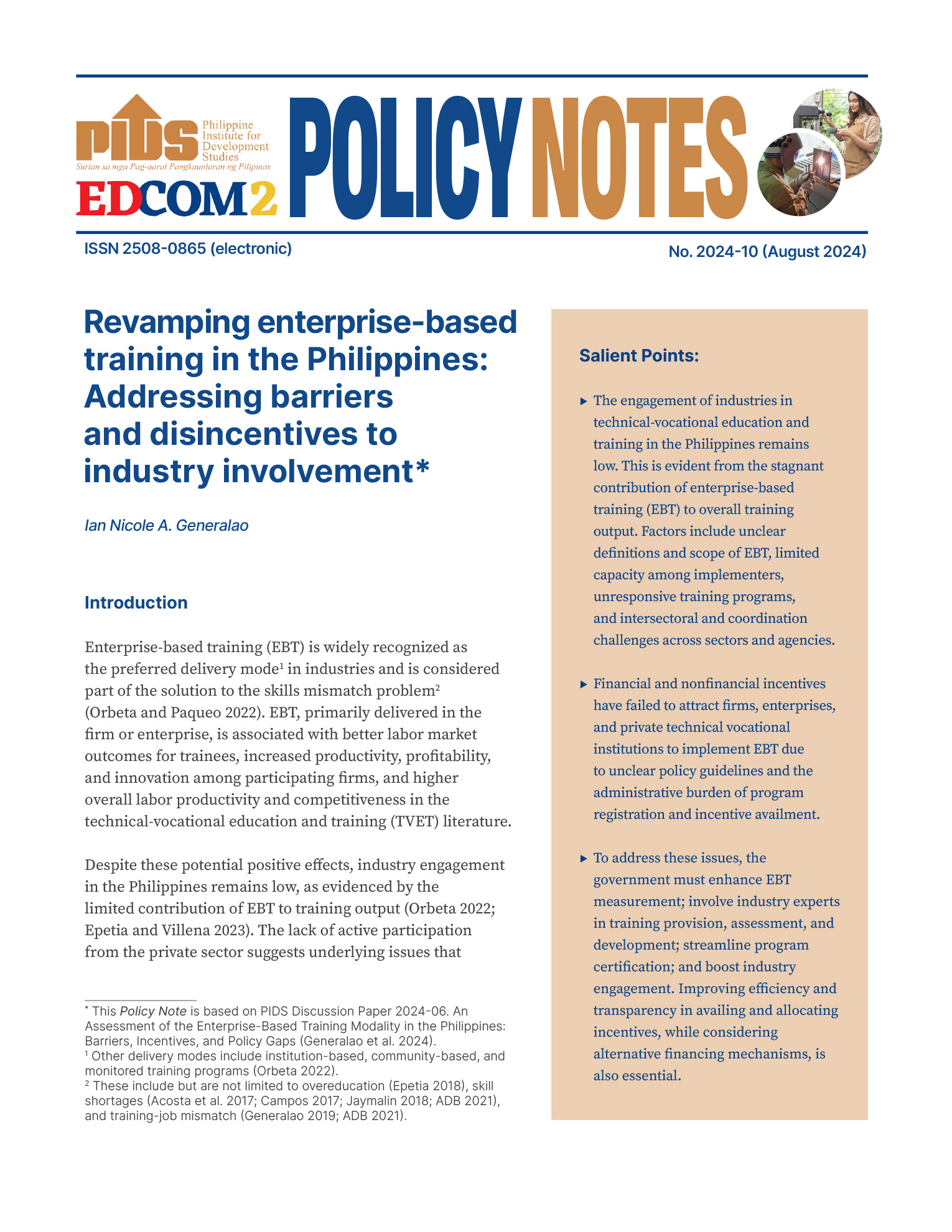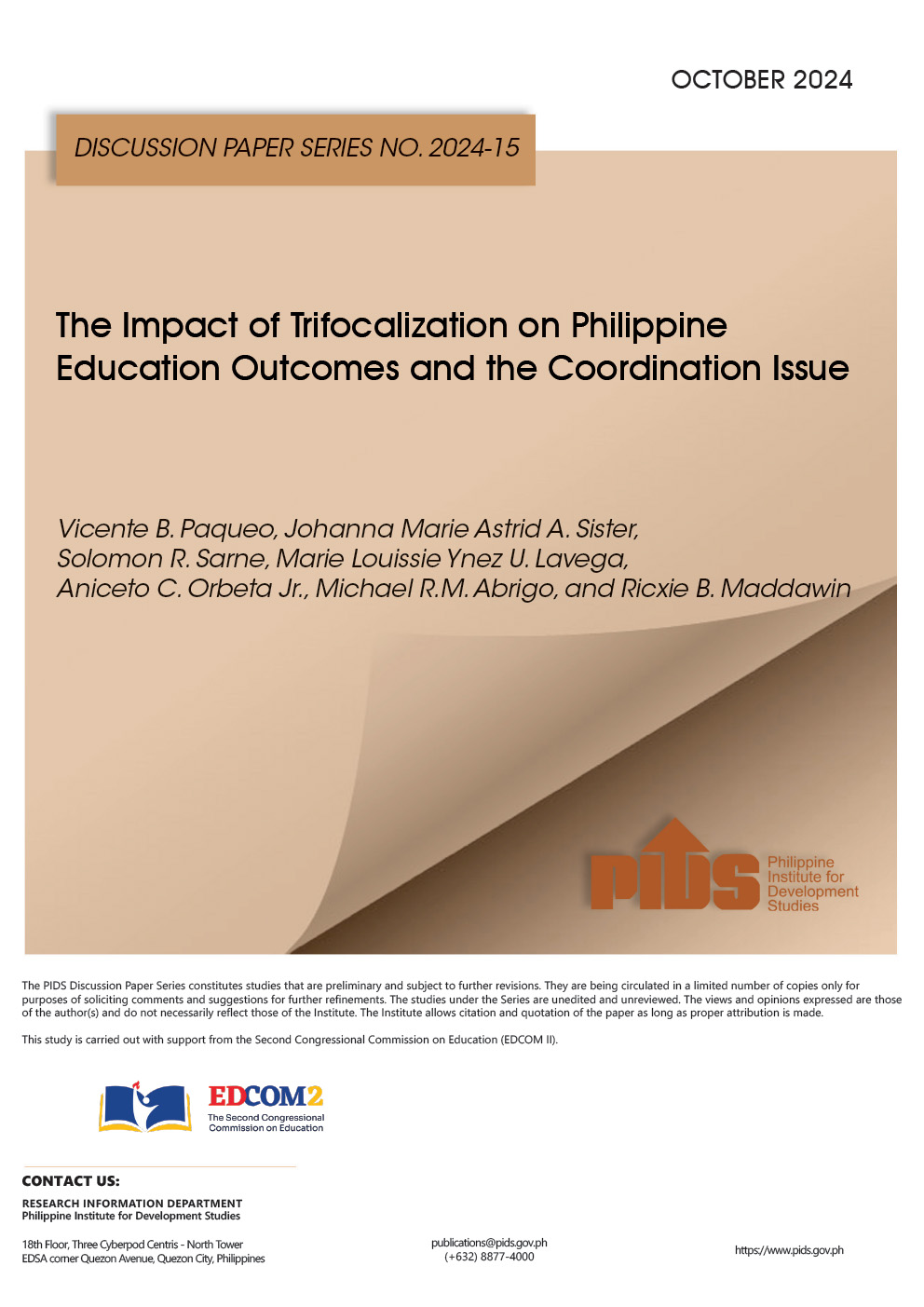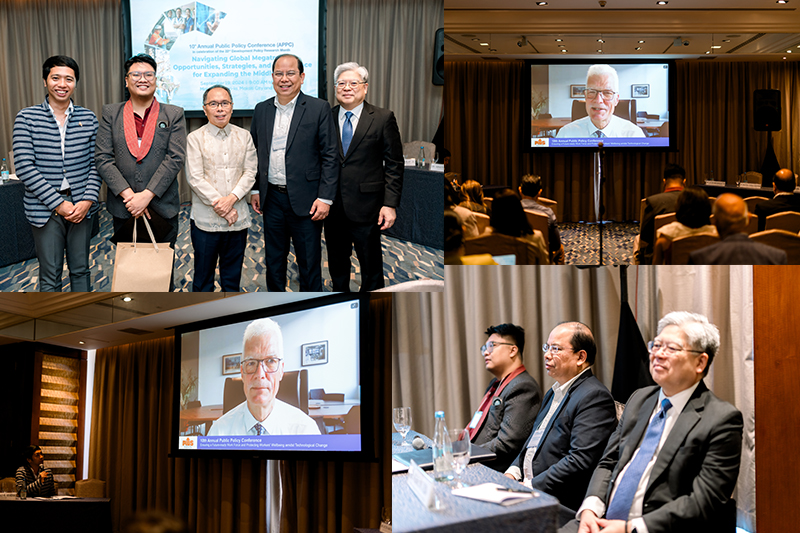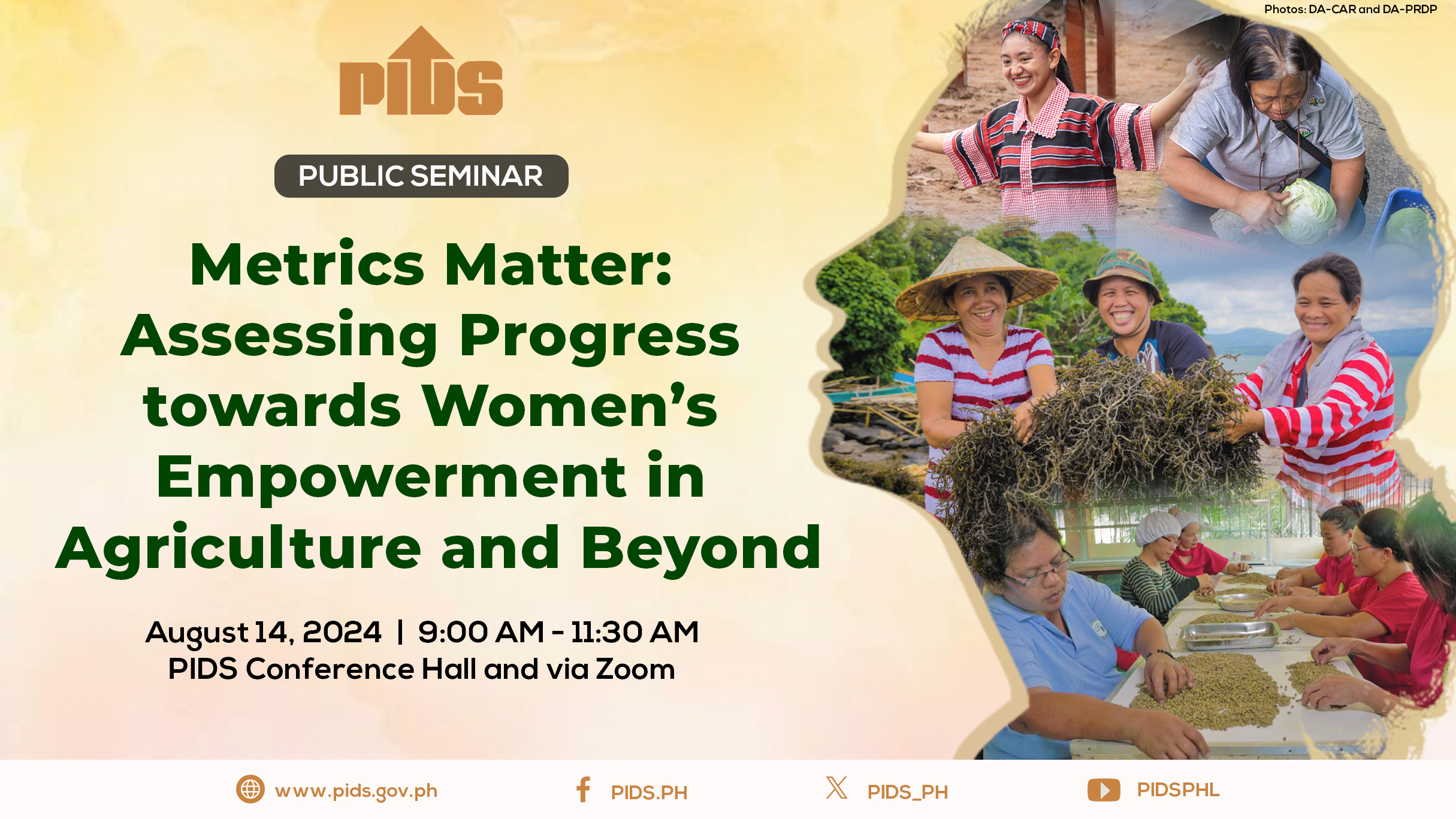At a webinar organised by think tank Philippine Institute for Development Studies (PIDS), the Department of Labour and Employment (DOLE)’s executive director Ahmma Charisma Lobrin-Satumba said as online work does not require many eligibility requirements unlike traditional or offline employment, it provides alternative employment opportunities even to those with limited educational and professional experience.
In addition, the flexibility and work-from-home option of online work allow women to do paid work while fulfilling family responsibilities.
However, she said, since online work is not adequately covered by existing labour regulations and social protection systems, it may widen social protection gaps in the Philippines.
The low labour force participation of women is proof that gender gaps in the labour market of the Philippines is still prominent, despite the country being one of the first in Asia to support women through ratifying several international conventions, enacting gender-specific legislation, and formulating policies that promote gender equality, Satumba said.
As such, it is crucial to have the right policies which address the work constraints posed by the platform economy and help realise the potential of the online market to create more jobs for women, she said.
She also urged the Philippine Statistics Authority to improve its data gathering for its labour force survey, to more accurately capture the online employment scenario in the country, according to Rappler.











